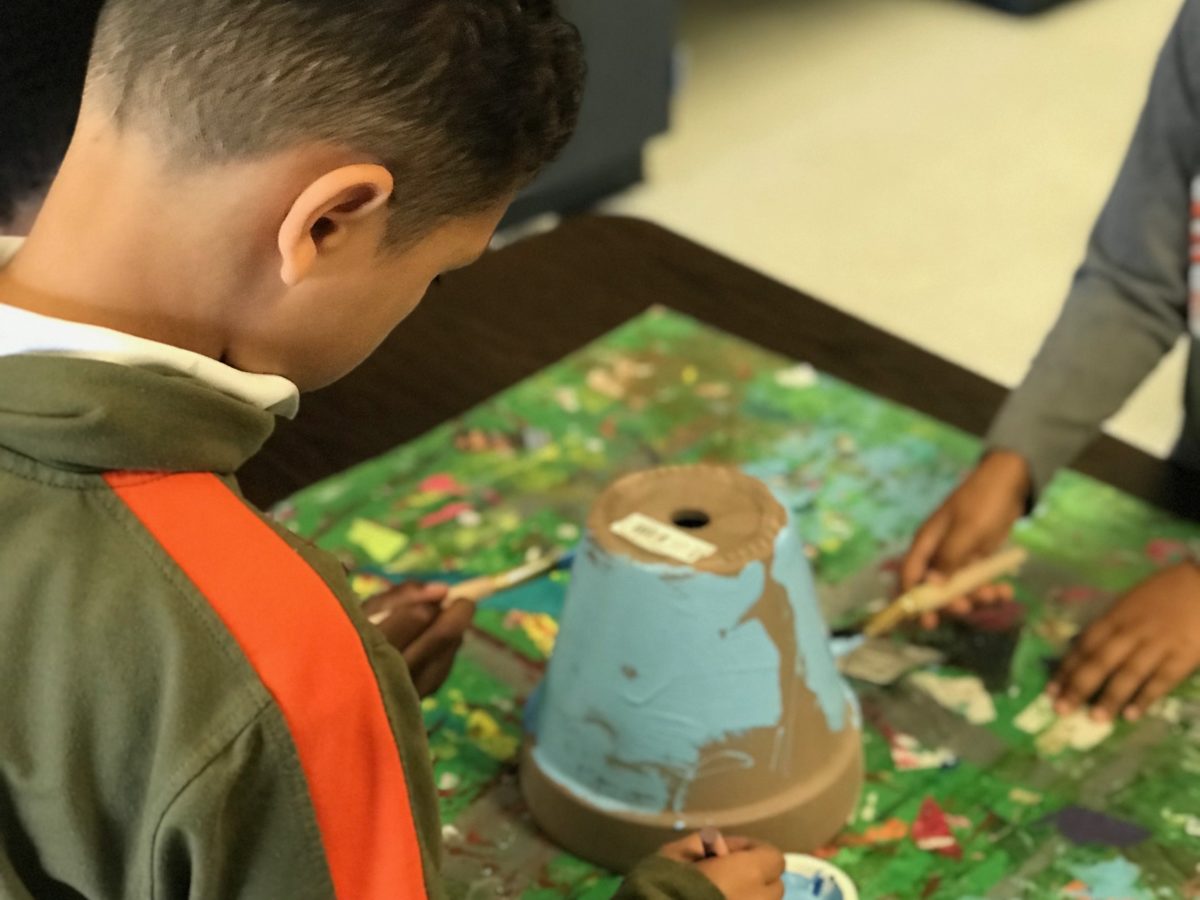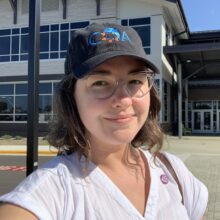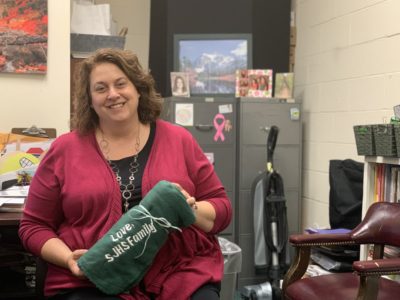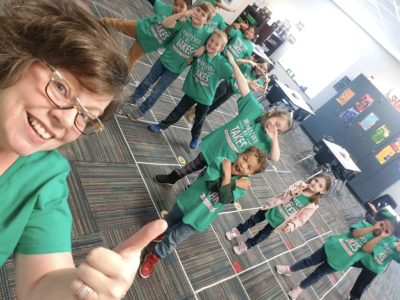

Share this story
|
|
Behind the Story
In January, EdNC reported that evidence suggests at least 3,600 children in North Carolina have experienced the death of a caregiver due to COVID-19. Experts now put that estimate closer to 6,000. In February we distributed a survey to principals, school counselors, and EdWeekly newsletter subscribers asking how they and their communities support grieving children. We have since highlighted several examples, and this report includes some of those best practices from throughout the state.
In recent weeks, the death toll from COVID-19 in the United States has surpassed 1 million.
Almost 25,000 of those who have died were North Carolinians, and thousands of them left behind children who had been in their care.
EdNC has spent the past eight months researching best practices for supporting grieving students in schools and communities. When we began this project, about 4,000 children in North Carolina were grieving the death of a caregiver due to COVID-19. Now that number is probably more than 6,000, based on estimates from leading experts.
What follows is a toolkit for caregivers, schools, and community groups looking for ways to support grieving children. All of these strategies are low-cost and can be implemented quickly.
Understanding ‘caregiver deaths’
Caregivers in this context are parents, custodial family, or family members who live in the same household as the children and provide for at least some of their basic needs.
The death of a caregiver can have both short- and long-term negative effects on the educational and health outcomes of children over the course of their lives.
Adults who work with children play an important role in offsetting that harm. One way is by normalizing conversations about death and dying. That’s why EdNC has used specific language such as “death” and “died” throughout this project, avoiding abstract terms like “loss” and “passed away.”
While this project has focused on caregiver deaths associated with COVID-19, many of the grieving students in our state have experienced the death of a parent due to opioids, car crashes, or gun violence, all of which led to more deaths during the pandemic.
Proactive strategies
There are proactive steps schools and communities can take to prepare children for coping with grief. As nearly all of the experts we spoke with pointed out, every last one of us will experience the death of a loved one. It’s a good policy to prepare.
The COVID Collaborative, a team of leading experts in the fields of health, education, and economics, recommend training teachers to recognize and respond to childhood grief. One such opportunity is available through the Grief-Sensitive Schools Initiative (GSSI).
GSSI trains school personnel to provide a supportive environment for students who have experienced the death of a loved one. Schools that participate in this free training are eligible to receive a $500 grant for developing additional support for grieving students. Nine public schools in North Carolina are already GSSI accredited.
Training is also available from organizations such as the Durham-based Center for Child and Family Health (CCFH). Focusing on trauma-informed practices, CCFH equips trainees with strategies, practices, and interventions to effectively address trauma at any stage of life.
One proactive strategy developed by a team at Carteret County Public Schools is to “pre-teach grieving.” Heather Boston, director of student support services there, took this approach because brains aren’t capable of learning new skills when they are under extreme stress, like the stress caused by the death of a caregiver. If students learn about grief before they experience it, they’ll be ready with the right skills when they need them.
Combining strategies from a variety of evidence-backed resources, Boston led a team that created a lesson plan to be taught over three days as part of an existing social emotional learning (SEL) curriculum.
The lessons teach students to recognize emotions and physical sensations associated with grief, encourage them to identify their previous experiences with loss in other contexts, then help them reflect on strategies that have brought them comfort in the past. In this way, not only do students learn the skills needed to cope with grief, but teachers and staff learn how to support each student when they encounter grief in the future.
Reactive strategies
Most schools in North Carolina adopt reactive strategies in response to caregiver deaths. These can be used from the moment a school is informed of a death to months or years after the death occurred.
Many of the schools we spoke with deliver food and flowers to families experiencing the death of a caregiver. But schools in Johnston County provide something extra for when the casserole has been eaten and the flowers start to wilt.
In elementary schools, students receive a stuffed animal and an age-appropriate book about grief. In middle and high schools, older students receive blankets or sweatshirts. These items can provide ongoing comfort to students as they process their grief over time.
Various forms of counseling are the most highly recommended reactive strategies for supporting grieving children. These could take the form of individual or group counseling and could include additional resources such as books, workbooks, or therapy animals.
The COVID Collaborative specifically recommends providing support via peer groups and grief camps. Throughout the state, individual school counselors operate multi-week group counseling sessions specifically for students who are grieving a parent. North Carolina is also home to a variety of grief camps where children can connect with others who have experienced grief, in a safe and supportive environment outside of school.
School counselors also recommended several books that they use themselves or that they share with caregivers to help students cope with death. The Invisible String, The Goodbye Book, Saying Goodbye, Samantha Jane’s Missing Smile, and Lifetimes: The Beautiful Way to Explain Death to Children all come highly recommended.
In both individual and group counseling, school counselors also use workbooks to help young children process their grief. One such workbook was created by Laura Oathout, a school counselor based in Nashville, Tennessee. The “Let’s Grow Through Grief” workbook can be used virtually or in person and contains coloring, writing, and crafting activities that can help counselors teach students what grief is, how it feels, and how to move through it in healthy ways.
Pet therapy also can be incorporated into individual or group counseling for students of all ages. Schools across Michigan and in Iredell-Statesville Schools in North Carolina have embraced the use of therapy dogs to support students’ mental health and wellness. Charlotte-based school counselor Martina Bumgarner has found her therapy dog, Finley, to be particularly helpful in supporting students who have experienced the death of a caregiver.
Outside of counseling, the COVID Collaborative points to the potential of existing mentoring programs such as Big Brothers Big Sisters of America for supporting grieving children. When a caregiver dies, the child’s relationships with other loving adults become even more important. In the absence of a parent, a good mentor can provide ongoing love and support to a child as they grow.
In addition to supporting children, at least one school hosts meetings to provide support for relatives who have taken on caregiving roles after the death of a parent. Relatives as Parent Partners (RAPP) is a program operated by Family Resources of Rutherford County. RAPP meetings take place in multiple locations throughout the county, including the media center of Forest W. Hunt Elementary.
Every strategy in this toolkit is supported by evidence, recommended by experts and low-cost, and can be effectively implemented locally.
Additional resources
- The Coalition to Support Grieving Students offers a wide variety of free resources for supporting grieving students.
- Boston Medical Center’s “Good Grief Program” provides a general guide for supporting children through grief, as well as a pandemic-specific guide.
- Rainbows for All Children trains adult volunteers to lead grief support groups for children. They already have active groups in Durham, Greenville, and Windsor, and they offer support for starting new groups as well.
- PetPalsNC provides animal-assisted interventions that target a student’s specific needs in Orange, Durham, and Carrboro-Chapel Hill school districts, and is looking to expand.
- Hidden Pain is a report from the COVID Collaborative about children who have experienced the death of a caregiver due to COVID-19 and what we can do to help them.





